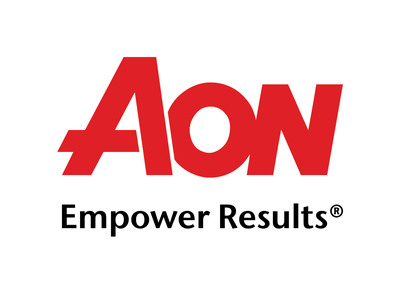LINCOLNSHIRE, Ill., July 9, 2015 /PRNewswire/ -- Most employers plan to change their long-term health strategies to evolve with the changing health landscape, yet a new Aon Hewitt survey shows there has been little effort over the past year to move in that direction. So what is most likely to drive the impetus for change?

According to Aon Hewitt's survey of more than 1,000 companies, one of the biggest drivers is what other employers do. More than three-quarters of companies (77 percent) said the actions of their peers have a significant or moderate influence on their own health care strategies, and 59 percent said so do the actions of major employers in their key geographies.
Surprisingly, 46 percent said the upcoming 2016 Presidential and Congressional Election will have little to no impact on their health strategy. About half (49 percent) said it will have some impact, but they plan to move forward and will develop some alternatives tied to different election scenarios.
"Cost increases have eased over the past few years, reducing the pressure on companies to deviate from the status quo," said Sue Willette, senior vice president for Health at Aon and the leader of the survey. "Very few companies want to be first in making transformative changes, but many want to be fast followers. The rate at which companies will take action is likely to be determined by a combination of the predicted spike in future cost trend and bold moves from other employers, particularly from those companies in related industries."
Employers Taking Little to No Action in 2015
According to Aon Hewitt's survey, very few employers are planning to make changes to their health strategies in 2015. Even some of the most prevalent tactics in employers' health strategies had significantly low adoption rates in 2015:
- Increasing deductibles and copays (16 percent)
- Providing cost and quality transparency tools (10 percent)
- Providing personalized, aggregated online views of health care usage and other information (9 percent)
|
Activities in Companies' Health Care Strategies |
In place |
Adding 2015 |
3-5 years |
|
Increase deductibles and/or copays |
22% |
16% |
46% |
|
Provide cost and quality transparency tools |
37% |
10% |
48% |
|
Provide personalized, aggregated online view of health care usage and other information |
39% |
9% |
44% |
|
Increase number of plan options available, coupled with decision support tools, to help employees find a plan that best meets their needs |
11% |
4% |
39% |
|
Reduce subsidies for covered dependents across the board |
14% |
4% |
50% |
|
Implement/increase specific surcharges for adult dependents who have coverage elsewhere |
14% |
3% |
50% |
|
Offer CDHP as a full replacement |
14% |
2% |
41% |
|
Provide expanded choice of plan design options for completing certain health activities |
6% |
2% |
54% |
|
Provide on-site preventive, primary and urgent care services |
16% |
2% |
22% |
|
Eliminate coverage for adult dependents with access to other coverage |
7% |
1% |
48% |
Continued Focus on Health and Wellness Programs
Despite little change in health care strategies for 2015, 87 percent of employers indicated that increasing participant awareness of and decision making related to health issues is their top priority. However, employer action is still slow. Aon Hewitt's survey showed a small but continued increase in the number of employers offering various health and wellness-related programs. Almost two-thirds of companies offered biometric screenings and smoking cessation programs in 2015, and about a third offer stress reduction and nutrition programs.
|
Health Programs Offered |
2014 |
2015 |
|
Biometrics |
64% |
65% |
|
HRQ |
67% |
65% |
|
Weight management |
50% |
51% |
|
Tobacco cessation |
63% |
64% |
|
Physical activity challenges |
52% |
55% |
|
Health improvement coaching |
51% |
53% |
|
Stress reduction |
31% |
33% |
|
Nutrition program |
32% |
35% |
|
On site fitness center |
42% |
43% |
"Focusing on health and wellness is a key initiative for employers, and most are focusing on a few behaviors over the long-term to maximize the impact improving health has on business performance," said Stephanie Pronk, senior vice president and National Health Transformation Leader. "Companies that promote a strong culture of health have employees who are happier, less stressed and more engaged, which leads to better productivity and stronger business performance."
Further information
For further information, please contact the Aon Hewitt PR team: Amy Kaleniecki, 847-771-4225 or Maurissa Kanter, 847-442-0952.
Follow Aon on Twitter: https://twitter.com/Aon_plc
Sign up for News Alerts: http://aon.mediaroom.com/index.php?s=58
Logo - http://photos.prnewswire.com/prnh/20100719/AQ37264LOGO
SOURCE Aon plc
Access international media contacts, the full library of Aon media releases, and a media kit with fact sheet and executive bios, via links below.